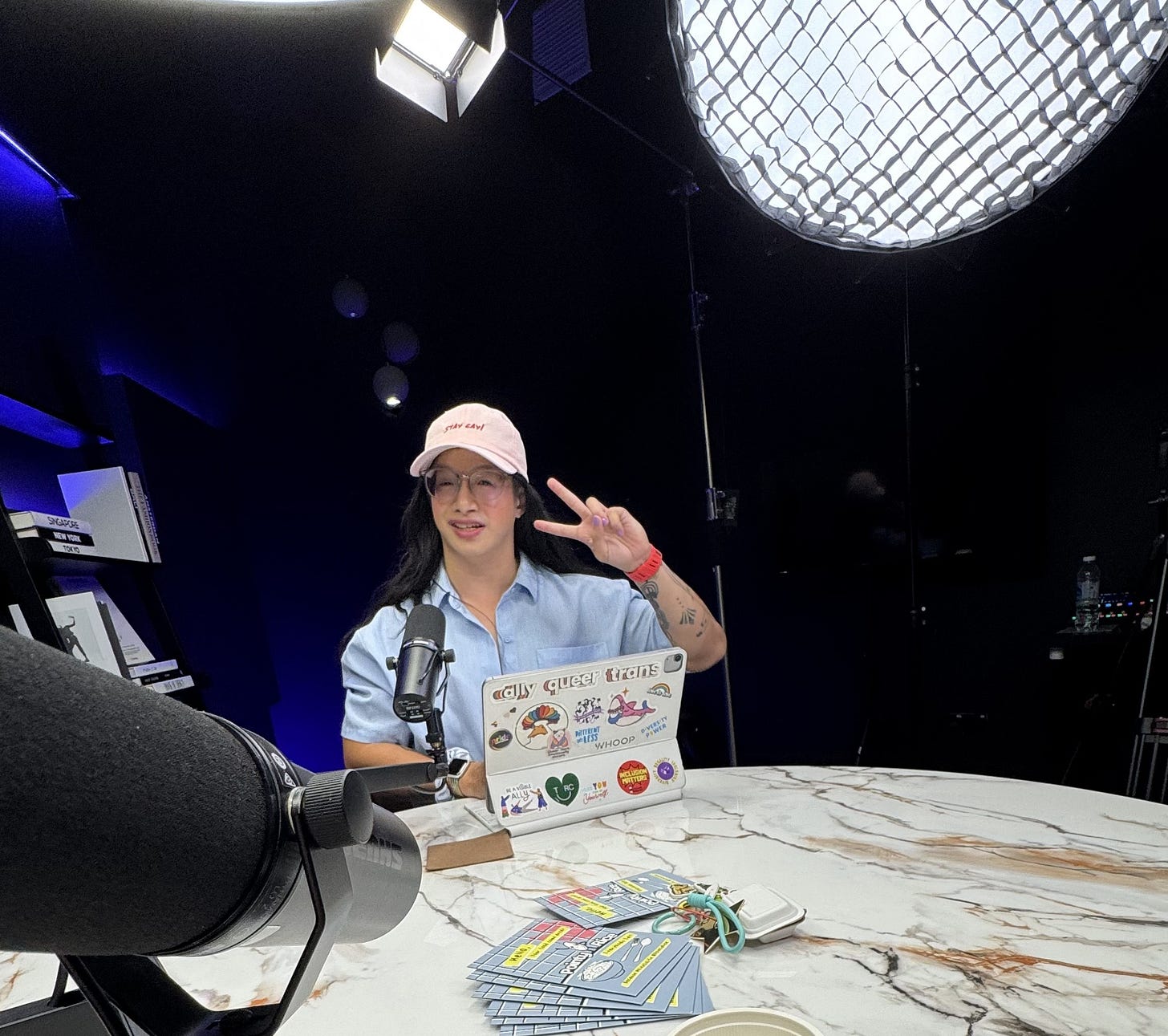Content creation healed my people pleasing
How turning my posts into mirror work helped me break free from validation and build a voice rooted in freedom.
I grew up reading every face in the room before speaking, convinced approval was the price of belonging, a habit that kept me small even as I learned to succeed, because I believed safety lived in validation rather than truth.
When I came out as queer and gender fluid in Singapore, that reflex collided with a rigid culture that scrutinised every choice I made, whether it was wearing a skirt on the street, entering a bathroom under the weight of stares, or sharing my story in a workplace that preferred silence over difference.
Every moment asked me to choose between shrinking or standing as myself.
Then I began creating content, just me and my phone, no script, no audience, no applause, and it felt confronting to watch my own face and hear my own voice without anyone to please, yet every recording turned into mirror work, every post a small act of forgiveness, until the practice rewired my nervous system from chasing approval to offering validation inward.
Content creation became my healing, the process that helped me shift from performance to authorship, from external permission to self-permission.
Over time, it built a personal brand grounded not in polish but in perspective, one that leaders now trust and clients hire because conviction carries more weight than compliance.
Most importantly, my neurodiverse daughter sees me visible and unshrinking, learning that authenticity is not rebellion but resilience, that living truthfully is how you create safety, and that people pleasing may feel protective, but self-permission is what sets you free.
Here is what you can do if you are a people pleaser:
Treat content as practice, not performance. The act of posting is the work, not the likes that follow.
Start small and consistent. Write a paragraph, film a minute, publish without waiting for perfection.
Use your discomfort as data. If posting scares you, ask which part of yourself still seeks permission, then speak directly to it.
Build trust with yourself first. The more you validate your own voice, the more conviction your audience feels.
For people pleasers, posting online feels terrifying. However, creation is not about chasing validation; it is about giving it to yourself, and when you learn to speak without permission, your voice stabilises, your brand stabilises.
Your freedom stabilises, because the most powerful story you will ever tell is the one where you stop asking for approval and start approving of yourself.
See you next Sunday.
Want to lead with authenticity and build deeper connections?
I coach creators and founders on building personal brands through systems, philosophy and sustainable content.
I also work behind the scenes as a ghostwriter and fractional creator, helping creators, founders, and brands build content systems across LinkedIn, newsletters, and podcasts.
Everything I teach my clients, I write about in my newsletter with real stories, leadership insights, and frameworks that turn quiet voices into trusted ones.
Work with me or download my free templates and frameworks here: https://stan.store/mediumshawn



And it's actually called narrative therapy. Of one can't write then there somatic therapies like psychodrama.
This is classic shame and I should know as have same issues. Started writing a bit myself on my life's traumas, helpful, not sure whether or how to share it as it's relatable to some, yet part of me I don't want to disclose widely.